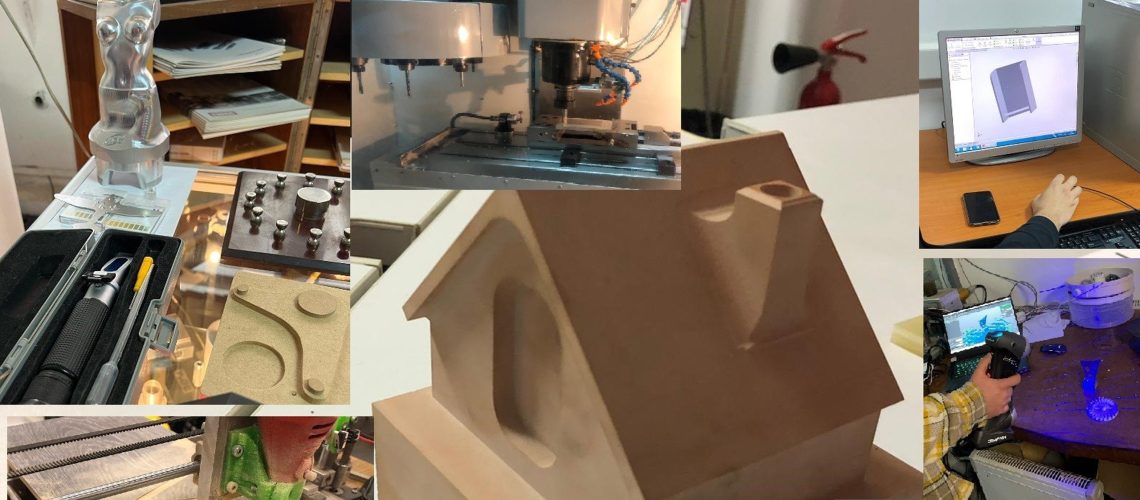OBIECTIVE DIDACTICE:
Disciplina “Materiale Tehnologii” vizează însușirea de către studenţi a elementelor teoretice şi practice privind materialele și tehnologiile moderne de fabricație specifice industriei constructoare de mobilier. În prima parte a cursului sunt analizate principalele materiale utilizate în arhitectura și în industria constructoare de mobilier cu accent pe metodele moderne de investigare, analiza microstructurilor specifice, caracteristicile mecanice și modul de dimensionare și proiectare a componentelor de mobilier. Printre altele sunt analizate aliajele amorfe si nanomaterialele din industria mobilei, oțelurile și aliaje neferoase moderne, materiale polimerice și compozite. În partea a doua a cursului sunt analizate cele mai noi tehnologii de fabricație cum ar fi tehnologiile moderne specifice ingineriei suprafețelor (procedeele PVD, CVD, imprimare, pulverizare termică) procedeele avansate de tăiere (laser, jet de apă, electroeroziune), tehnici de scanare și prototiparea rapidă, printare, prelucrarea pe mașini cu comandă numerică, tehnologii de procesare a materialelor compozite și tehnologii moderne de turnare. Seminarul se desfășoară în laboratoare performante dotate cu utilaje moderne, unde sunt puse în practică noţiunile teoretice.
TEACHING OBJECTIVES
The discipline “Materials Technology” aims to help students acquire both theoretical and practical knowledge about materials and modern manufacturing technologies specific to the furniture manufacturing industry. In the first part of the course, the main materials used in architecture and the furniture manufacturing industry are analyzed, with a focus on modern methods of investigation, analysis of specific microstructures, mechanical properties, and the process of sizing and designing furniture components. Among other things, amorphous alloys and nanomaterials in the furniture industry, modern steels and non-ferrous alloys, as well as polymeric and composite materials, are analyzed. In the second part of the course, the latest manufacturing technologies are analyzed, such as modern surface engineering technologies (PVD, CVD processes, printing, thermal spraying), advanced cutting processes (laser, water jet, electroerosion), scanning techniques, rapid prototyping, printing, machining on CNC machines, composite material processing technologies, and modern casting technologies. The seminar takes place in advanced laboratories equipped with modern machinery, where theoretical concepts are put into practice.
